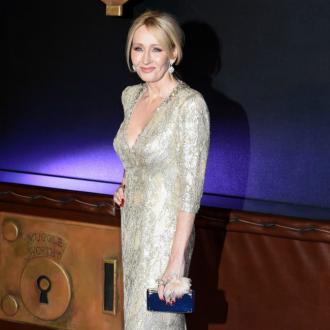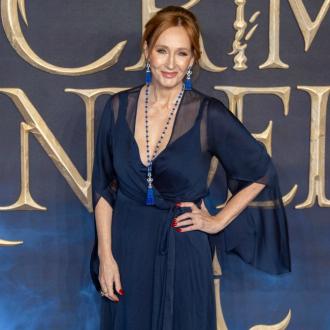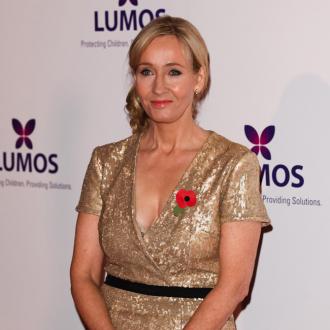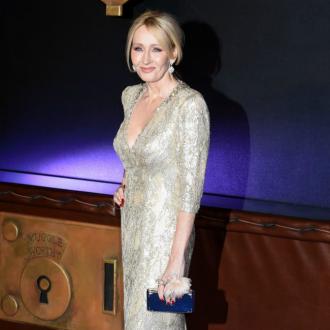5 Suggestions For Aspiring Writers From JK Rowling's Rejection Letters
By Holly Williams in Books / Authors on 30 March 2016
Because even the best have to persist to succeed.
One publisher has responded to Jk Rowling's recent rejection letter unveilings, confirming that her alter-ego Robert Galbraith had plenty of rejection when trying to find a publisher for 'The Cuckoo's Calling'. But the whole move has definitely taught potential writers of the world a lot about attaining success.
 JK Rowling urges young writers not to give up
JK Rowling urges young writers not to give up
For first time novellists, it's not easy to get publishers to be as enthusiastic as you are about your hard work. JK Rowling found this out the hard way with 'Harry Potter', when she was initially rejected by multiple publishing houses despite it going on to become one of the world's biggest franchises. However, she was willing to go through it all over again when she went forward with the first book of her Cormoran Strike crime series 'The Cuckoo's Calling' under the pseudonym Robert Galbraith. Once again, she found herself receiving several rejection letters before she was finally published, and she recently revealed two of them to fans on Twitter as 'inspiration' to other aspiring authors.
Now one of the publishing companies, Severn House's Creme de la Crime, have responded to the news of their letter going viral, confirming that it was genuine and offering further advice to writers. 'We have conducted investigations over the Easter weekend and the letter is correct - the submission was sent at the time that Creme de la Crime was being sold to Severn House and until Friday we had no idea of this', chairman Edwin Buckhalter told The Bookseller in a statement. 'We are very much a specialist publisher and we prefer named with a track record in hardback, or if in paperback, from an established publisher.'
More: JK Rowling has earned billions from Harry Potter
So what advice has JK Rowling's move managed to convey to storytellers of the world?
1. Get an agent - Buckhalter offered one tip in his statement: 'I would suggest writers try to find a good agent. Publishers tend to look through submissions from agents first.' We know that Rowling was represented by Christopher Little Literary Agents as she searched for a publisher for 'Harry Potter and the Philosopher's Stone', so it seems a genuinely good place to start.
2. Research publishers of your specific genre - Contrary to Creme de la Crime's rather brief rejection note, another group - Constable and Robinson, who, incidentally, have not responded to Rowling's Tweet - had many alternative suggestions for Galbraith in their letter. 'Double check in a helpful bookshop, on Amazon or in the twice yearly 'Buyer's Guide' of the Bookseller Magazine... precisely who are the publishers now of your fiction category genre', they offered. They also suggest checking out 'The Writer's Handbook' and 'The Writers' and Artists' Yearbook''.
3. Reach far and wide - Don't just settle for chasing one publisher; JK Rowling's first manuscript went to several companies. 'Nowadays it is perfectly acceptable to approach numerous publishers at once and even several imprints within the same group', Constable and Robinson added.
4. Send a sneak peak to the relevant editors - C&R suggest approaching the publishers for the editors' names and then providing them a teaser of what you have to offer. 'Send to each editor an alluring 200-word blurb, the first chapter plus perhaps two others and an SAE (stamped addressed envelope)', they continue. 'The covering letter should state as precisely as you can the category/genre of fiction you are submitting.' They also suggest citing authors (particularly from those publishers) who have been successful in that same genre.
5. Attend a class - While the suggestion that JK Rowling should attend a writing course may seem laughable, it's a useful suggestion for first-time writers. 'A writers' group/writing course may help', they said towards the end of their letter.
6. Don't give up - Buckhalter reiterated that Rowling's Twitter post was an attempt 'trying to encourage writers not to give up' and added that Harry Potter also saw it's fair share of rejection. 'I wasn't going to give up until every single publisher turned me down, but I often feared that would happen', Rowling admitted to her followers.
Contactmusic
Movies and Trailers

Fantastic Beasts and Where to Find Them Movie Review
It's been five years since the last Harry Potter movie, and J.K. Rowling has been...

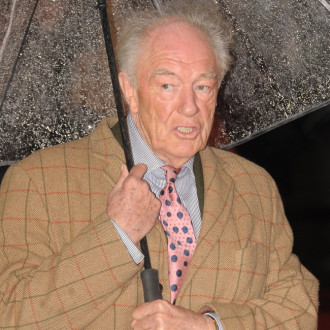



![What I am needs no excuses: Music to empower anyone to be themselves [Playlist] What I am needs no excuses: Music to empower anyone to be themselves [Playlist]](https://www.contactmusic.com/images/home/images/content/jk-rowling-2019-photo-credit-pa-images.jpg)

